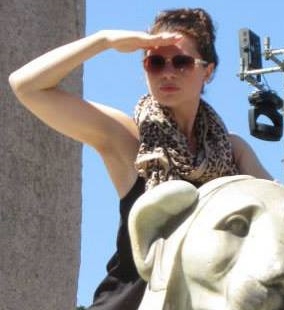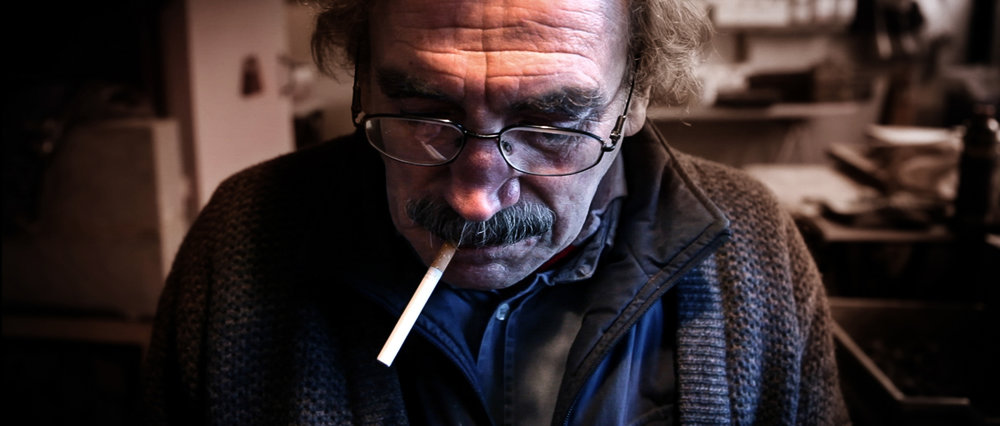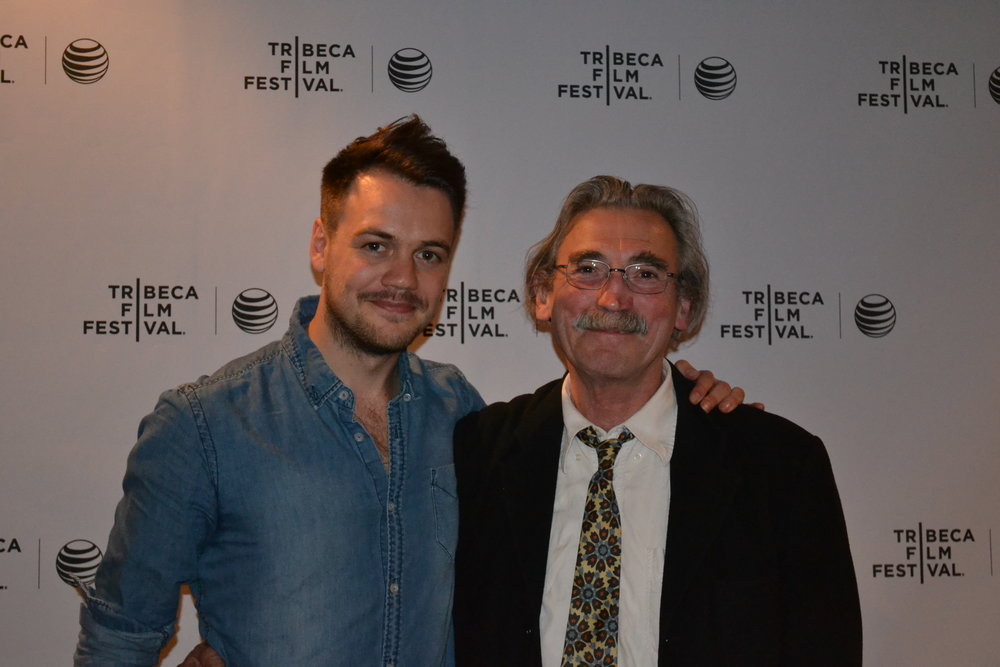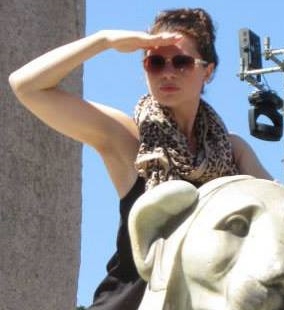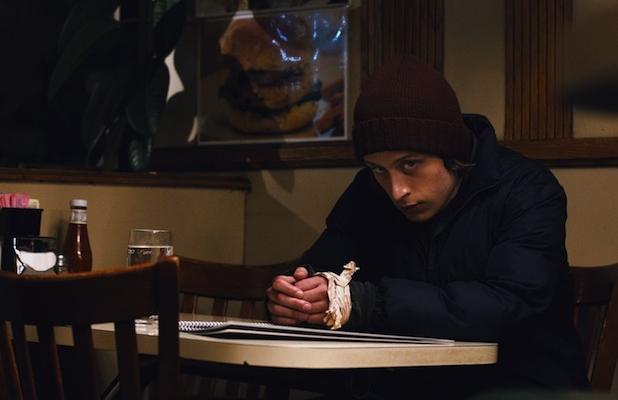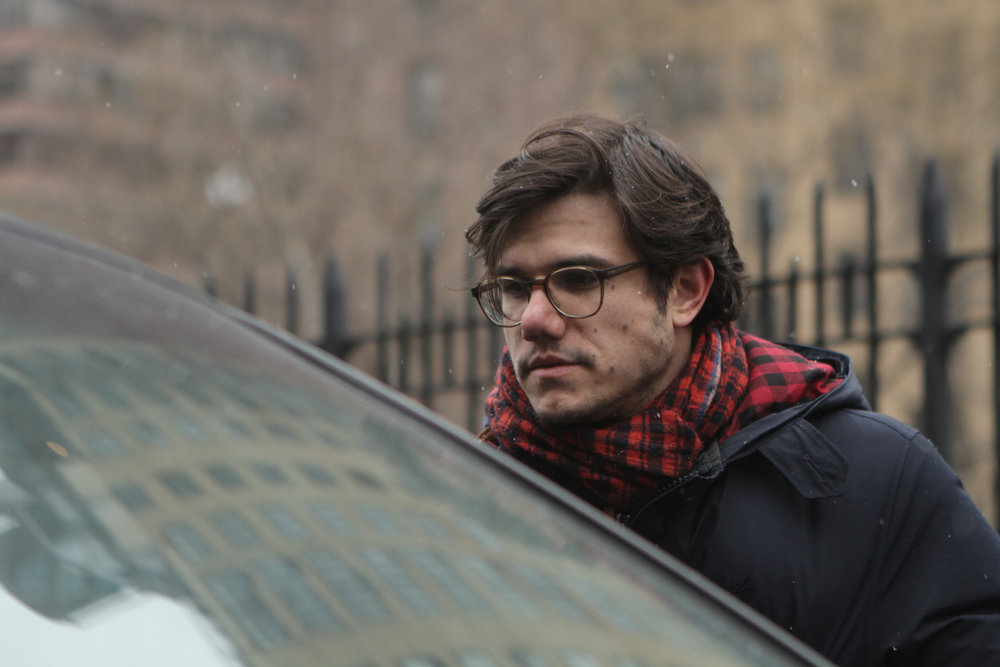TRIBECA FILM FEST 2014: AN INTERVIEW WITH "MATCH'S" PATRICK STEWART AND STEPHEN BELBER
 Thursday, May 1, 2014 at 10:29PM | tagged
Thursday, May 1, 2014 at 10:29PM | tagged  Carla Gugino,
Carla Gugino,  Film Festival,
Film Festival,  Interview,
Interview,  Match,
Match,  Matthew Lillard,
Matthew Lillard,  Patrick Stewart,
Patrick Stewart,  Stephen Belber,
Stephen Belber,  Tribeca Film Festival | in
Tribeca Film Festival | in  Articles by Liz Whittemore,
Articles by Liz Whittemore,  Interview,
Interview,  Tribeca Film Festival 2014
Tribeca Film Festival 2014
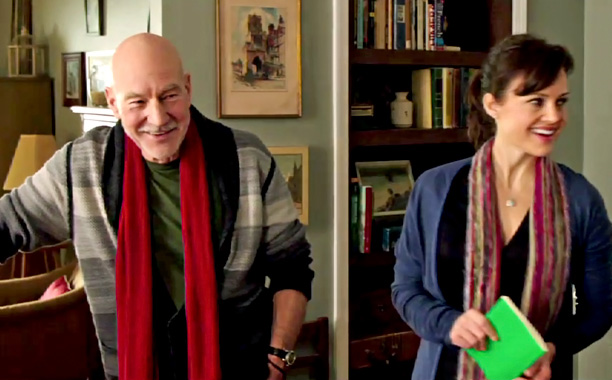 In the arts, like other career paths, but especially in the arts, one must sacrifice quite a bit to succeed. Putting off kids, working extra crappy jobs, and being selfish are all things most artists must do in order to live the dream. Eventually, those decisions can creep up on you, leading to regret.
In the arts, like other career paths, but especially in the arts, one must sacrifice quite a bit to succeed. Putting off kids, working extra crappy jobs, and being selfish are all things most artists must do in order to live the dream. Eventually, those decisions can creep up on you, leading to regret.
Stephen Belber has adapted his Tony-nominated stage play MATCH for the silver screen. The story centers around just three characters; Tobi (Patrick Stewart), an aging dance teacher, and the Seattle based couple, Lisa (Carla Gugino) and Mike (Matthew Lillard) who fly in to interview him. The setup is simple, Lisa needs info about what it was like during the 1960’s in the NYC dance scene. Hubby, Mike, is just along for the ride. They meet at a quaint neighborhood diner where Tobi is a regular. Once the three are comfortable enough, he invites them back to his apartment for drinks and continued conversation. Slowly, and under the influence of alcohol and a little pot, the hard questions come out. Mike, being a cop, begins to use what seem like interrogation tactics in inquiring about specific sexual partners. Tobi is compliant until it becomes clear that there are ulterior motives in this supposed dissertation inquiry. Finally, at the end of his polite host rope, he attempts to end the ruse. Mike’s aggression escalates as he demands a DNA sample from Tobi. He is certain that Tobi is his father. What happens from there is a startling scene of betrayal and crossed lines.
Gugino is earnest and vulnerable in her portrayal of Lisa. She is a woman who has lost her self-worth due to her husband’s emotional damage. Her one-on-one scenes with Stewart are breathtaking. Lillard, who I will forever associate with Scream, seems uncomfortable in his own skin, and I do mean that as a compliment. He struggles with his own identity, not sexually, but as a grounded man and caring husband. The dynamic between the three actors worked so well for me. The tension on screen is strong and each beat is carefully timed by Belber’s adaptation and in his direction.
Patrick Stewart is a legend of stage and screen, both large and small. No matter what role he takes on, he is perfection. Playing Tobi, in particular, seems to be more personal by his own admission. I was able to chat with this incredible talent, alongside writer/director Stephen Belber.
Being that this is the second time he's adapted one of his plays for the screen. Belber speaks to the challenges of moving a stage play to film:
Stephen Belber: Obviously, theater is about the dialogue and I was interested in getting in between the words. The dialogue is what it is, but I wanted to use the camera to get in between and chart the emotional landscape of the faces and what's not said, and where they're conveying emotion without words. So that was a fun challenge just to set myself, and to know that I had actors who were able to give so much without having to speak it. To be up close in Patrick's face when he is lying, and to compel the audience to know whether it is a lie or the truth. And to see him hear certain information that is thrown at him and to non-verbally register it, and deal with it, is very filmic and cinematic in a way you can't get in a theater. There's a great exchange that obviously takes place with the theater and a live audience so for this it's a whole different ballgame. So that's something I wanted to concentrate on.
On casting Patrick as Tobi:
SB: I wanted someone to go away from the broad comedy and the bigness of it and go to the humanity of it and I knew that Patrick could do that hands down.
Patrick Stewart: This morning has been curious for me, because every interview that I've done I have been asked, “So what were the challenges of taking on what was a stage play and now putting it in front of a camera?” I had never realized until this morning that I never actually gave your stage play a thought and people express real surprise when I said, “I didn't see the play. I never read it. I never thought of reading it”. Well, what I had was a screenplay and it was always a screenplay but furthermore I had the author behind the camera every minute of the day so why would I need to access something that we were not doing, anyway. It was very successful as a screenplay. I had no answer to these questions I've been asked all morning.
SB: I'm glad that you didn't read the play because it is a different piece. I wrote (the play) 10 years ago so I think I'm a more nuanced writer and I knew that I wanted to be different so it is a different ballgame and not a great reference point probably.
PS: The role and the story resonate strongly for me because a powerful theme in the film is about the choices that people can make in their lives, especially if they are people who are passionately, ambitiously building a career and how those choices require that some things get put aside or left behind, forever. The life of an actor, particularly an actor working in the theater, as I was working for decades, 6 nights a week I was not there to tuck my children up and sing a song. It was only Sunday night I could do that exclusively and so there was a huge part of my life... I was not making choices; those were just the conditions that you had to accept to work, so this theme in the film has related to me. How you feel you've made the right choices. You feel that you are where you want to be, but you don't know until the shock of what happens in the movie comes up, that actually the choices you've made were not the best ones and that life could have been very different. You know, the path not taken. I put my work first, always. I remember once at a dinner party in my own home sitting around a table 6, 8, 10 people, some actors, directors, but all people in the arts, this was the topic of conversation. Somebody at the table said, "I love my job, I love what I do, but my family always come first" and I heard a voice in my head, quite distinctly, saying, "Not me! Not me." I think it was shocking because it was true.
Liz, The Artswire: I had a question about theatre culture in the UK versus the US and since I have you both here, this is the perfect opportunity. I have found that the respect for theatre acting is so much greater in the UK. That is really where you hone your skills and then maybe from there you are plucked to do movies and television. I feel like it's the opposite in the US. I'm a theater kid and a writer so to have you both here with your perspectives, I was just curious where do you think that comes from? Why do you think theater maybe isn't as respected or wide as it is in the UK?
PS: First of all I'm not sure that that's true, but I think tradition has a great deal to do with it. There's been Theater on stage in England for 700 years and particularly a lot of classical theatre, as I've done. You look over your shoulder and you see all these actors going back in time who has been standing exactly where you been standing saying the same lines. I think it is different now in the UK. Most actors leaving drama school, as I hear this from the casting department of the Royal Shakespeare Company, say its not what it was. We don't have first pick, anymore, of the cream of the drama school because of these guys, they are not interested in doing theater. They see the careers that can be made in film and TV and that's where they want to be. So it's different from how it was. All I ever wanted to do was to be on stage. Everything that ever happened to me on film and television was an accident it. I fell over it rather than pursuing it. And it just so happened that you guys are so much better at film acting than we are. For the most part, you are. I loved the cinema when I was a kid! It was, for me, the absolute escape from my really rather not very great life. I don't recall seeing British movies. If I thought they were British I wouldn't go see them, and I sort of lost myself in this world that used to be overwhelmed with sadness. The curtains would close and I would have to go back to real life again. So working with American filmmakers and American actors, as with Matthew and Carla, both superb actors, was such a joy to me. I mean we do OK, we got a few actors that do OK. We did not have one hour of film acting in our drama school in 2 years. I think we once visited a television studio which is to say, "That is the camera.”
SB: I think he's right in the tradition and “Who is royalty?” and I think that film actors became royalty with kids growing up, but "These (referring to Patrick) are the icons,” and they value their skill. But there are enough kids here that catch the theater bug. Matt has weekly play readings in his living room, in his house in L.A., because he's a theater nerd. And you grab those people and then cross them over into film.
Liz: What has been your proudest moment, thus far, in your career?
PS: I think, as I said all I want to do was be on stage but I couldn't narrow that down to say what I really wanna be is on the stage of the Royal Shakespeare Theatre. That was actually my ambition and everything I did for the six years that led up to that wasn't going into that direction so I did one season with the Royal Shakespeare Company at Stratford upon Avon playing quite small roles, supporting roles, and understudy roles. And thank God, never, ever, ever had to go on. But at the end of that 10 month season, all the company, one at a time, were called to Peter Hall's office, it's like meeting the headmaster, "We will review your work", and I didn't think mine had been very good or overly interesting or of any real quality but all I wanted was to be asked, given one more chance to come back and do another season, and that's all I wanted. And it was my turn to go in, and I went in and Peter Hall said, "Well this isn't going to take long." And I thought, “Oh no, this is it.” And he said, "Look, are you aware that we have three year contract here?", and I said, "Yeah, I had heard of that." And he said, "We wanna give you a three year contract." I was speechless and outside the theater in Stratford there was a telephone box and I went down and I called my wife and she said, "How did it go?" .... and finally, getting the silence she says, "I take it it went well." That was it for me. Nothing has been quite so thrilling a feeling as that moment.
Match is a beautifully intimate film. It dares to go places that some might be scared to approach. How have our decisions in our lives affected where we are now? I think that remains to be seen.
VERDICT: MUST SEE
Written/Directed by: Stephen Belber Starring: Patrick Stewart, Carla Gugino, Matthew Lillard Runtime: 94 min
BOTTOM LINE: It's a contemplative film. You will, perhaps, reexamine your choices when you leave the cinema.

